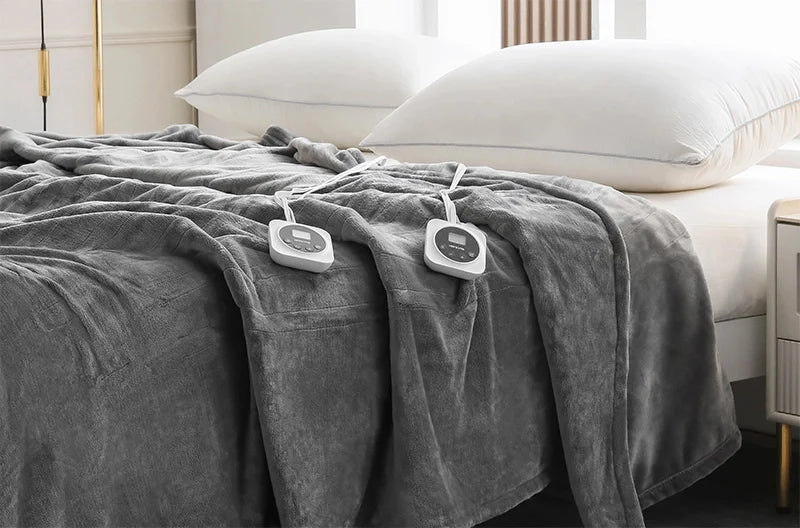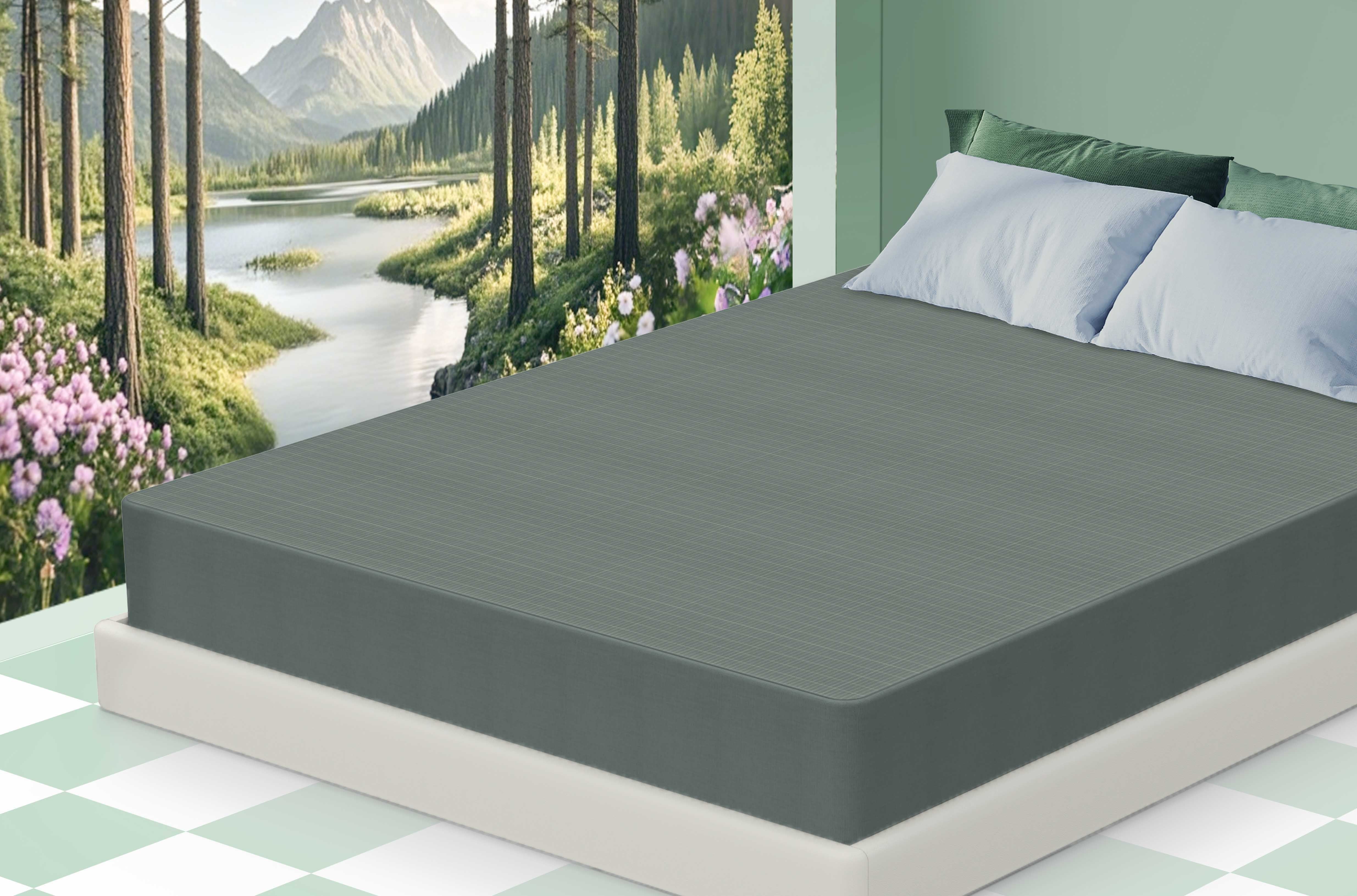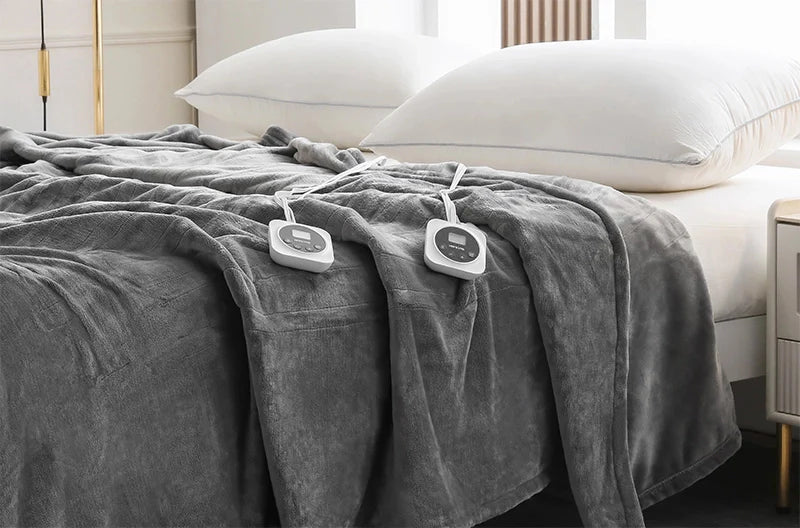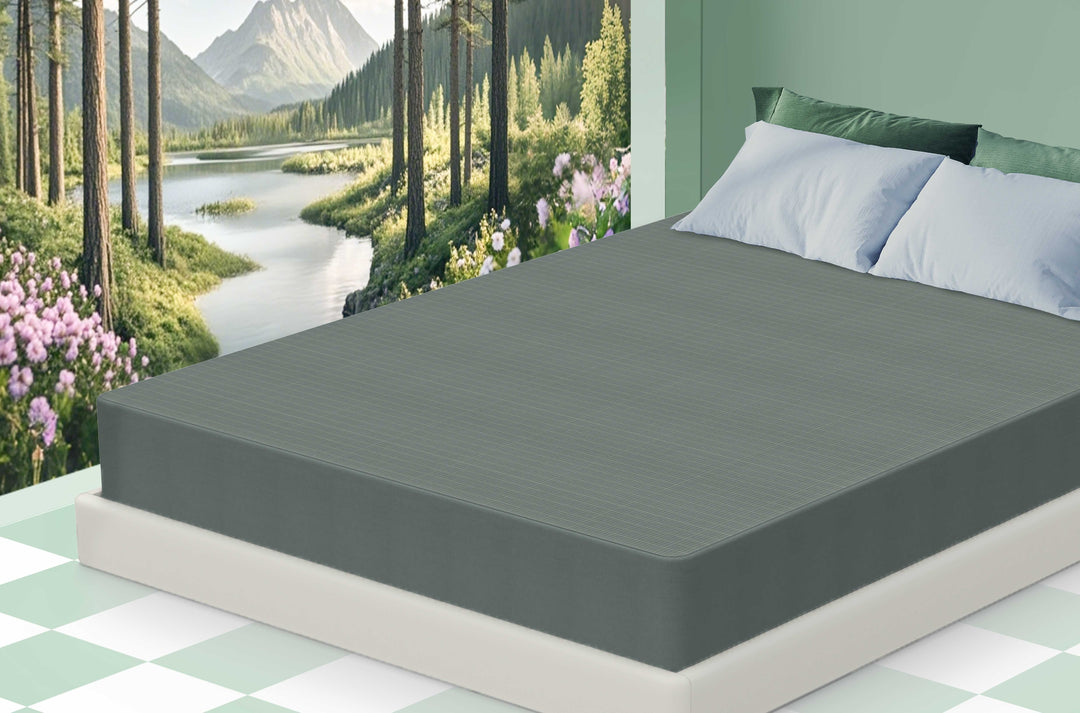How Shorter Days Affect Your Sleep Cycle (and How to Fix It)
As autumn and winter arrive, the days grow shorter, and many people notice their sleep cycle shifting. Feeling groggy in the morning, craving naps, or struggling to stay alert are common signs that your body is reacting to less daylight.
Understanding how shorter days affect your sleep—and learning strategies to adapt—can help you stay well-rested and energized all season long.
How Long Is a Sleep Cycle?
A sleep cycle typically lasts about 90 to 120 minutes, and most people go through 4 to 6 cycles per night depending on how long they sleep.
 Source: What is “normal” sleep?
Source: What is “normal” sleep?
Each cycle moves through different stages:
- Stage 1 (sleep onset): Transition from wakefulness to sleep.
- Stage 2 (light sleep): Body temperature drops, heart rate slows, and brain activity decreases.
- Stage 3 (deep sleep): Restorative slow-wave sleep, important for physical recovery.
- REM (rapid eye movement) sleep: Brain activity increases, vivid dreams occur, and memory consolidation takes place.
The early part of the night contains more deep sleep, while the later part has more REM sleep. This is why both a full night’s rest and consistency are important—waking up mid-cycle often leaves you groggy, while waking at the end of a cycle can make you feel more refreshed.
When shorter days disrupt your circadian rhythm, your sleep cycles may become fragmented—leading to lighter, less restorative rest. That’s why maintaining a consistent schedule and supporting your body’s natural rhythm with light exposure is essential.
The Role of Light in Your Sleep Cycle
Light is the primary regulator of your body’s internal clock, known as the circadian rhythm. When your eyes detect natural daylight, signals are sent to the brain to suppress melatonin—the hormone that makes you feel sleepy—and increase alertness, helping you stay awake and energized during the day. In contrast, darkness triggers melatonin release, preparing your body for rest.
How Shorter Days Disrupt Sleep
During autumn and winter, shorter days and reduced sunlight interfere with this process:
- Melatonin changes: Reduced daylight in autumn and winter can trigger earlier melatonin release, making you feel drowsy in the late afternoon. Lingering melatonin in the morning can also cause grogginess and make waking up harder.
- Serotonin decline: With less sunlight, serotonin—a neurotransmitter tied to mood—can decrease. Lower serotonin levels may lead to mood changes and further disrupt sleep patterns.
- Lifestyle influences: Shorter days often mean spending more time indoors, getting less physical activity, and relying more on screens and artificial light. These habits weaken the natural cues that regulate your circadian rhythm.
Together, these changes shift your natural sleep-wake cycle, raising the risk of sleep problems—from insomnia to oversleeping—and may even contribute to Seasonal Affective Disorder (SAD), a mood condition linked to reduced light exposure.
Summer vs. Winter Sleep Patterns (Quick Comparison)
| Factor | Summer (Long Days) | Winter (Short Days) |
| Melatonin | Lower during daytime | Rises earlier, lingers in AM |
| Serotonin | Higher, stable mood | Lower, mood dips |
| Energy Levels | Alert, energetic | Grogginess, fatigue |
| Lifestyle | More outdoor activity | More screens, less sunlight |
Other Factors That Affect Your Sleep Cycle
While shorter days play a big role, other biological, lifestyle, and environmental influences can disrupt your rest:

- Age: Sleep patterns naturally change over time. Children and teenagers often need more sleep, while older adults may experience lighter, more fragmented sleep.
- Hormones: Shifts related to puberty, pregnancy, or menopause can alter circadian rhythms and affect sleep quality.
- Stress and mental health: Anxiety, depression, or chronic stress can delay sleep onset or reduce deep sleep.
- Diet and stimulants: Caffeine, alcohol, and late-night meals may interfere with melatonin production and digestion, keeping you awake.
- Exercise levels: Regular physical activity supports better sleep, but intense workouts too close to bedtime may be disruptive.
- Environment: Room temperature, noise, and artificial light from electronics all impact circadian rhythm and sleep depth.
- Medical conditions: Disorders like sleep apnea, restless legs syndrome, or chronic pain can fragment the sleep cycle.
10 Tips to Reset Sleep Cycle During Shorter Days
The good news: with a few intentional habits, you can protect your sleep cycle. Try these fall and winter sleep tips:
Stick to a Consistent Schedule
- Go to bed and wake up at the same time every day—even on weekends.
- Gradually shift your bedtime by 15–30 minutes each night if your current schedule is off.

Maximize Morning Sunlight Exposure
- Spend 20–30 minutes outside after waking up to help reset your circadian rhythm.
- Natural light suppresses melatonin, signaling your body to be alert during the day.

Limit Evening Blue Light
- Avoid screens (phones, tablets, TVs) 1–2 hours before bed.
- Use blue light filters or glasses if evening screen use is unavoidable.

Create a Calming Bedtime Routine
- Engage in relaxing activities like reading, gentle stretching, or meditation.
- Avoid stimulating activities such as intense exercise or work right before bed.

Control Your Sleep Environment
- Keep your bedroom dark, cool, and quiet.
- Consider blackout curtains, white noise machines, or eye masks to support deep sleep.

Use Light Therapy if Needed
- A light therapy lamp can mimic natural sunlight and help regulate melatonin. Use it for 20–30 minutes in the morning, especially during shorter days.
- Red light therapy also eases seasonal depression by improving mood, energy, and circadian rhythm balance.

Watch Diet and Stimulants
- Limit caffeine in the afternoon and avoid large meals before bedtime.
- Reduce alcohol intake, as it can fragment sleep cycles.

Exercise at the Right Time
- Regular physical activity improves sleep quality.
- Avoid vigorous workouts within 2–3 hours of bedtime.

Try grounding (earthing)
- Walk barefoot outdoors to connect directly with the Earth, which may reduce stress and support relaxation.
- Use a grounding sheet or mat indoors to help regulate cortisol levels and improve sleep quality.

Manage Stress and Practice Relaxation
- Practice mindfulness, meditation, or deep breathing exercises daily to reduce stress and calm the nervous system.
- Lower stress levels help stabilize cortisol, support melatonin production, and promote more consistent, restorative sleep.

Tip: Combine grounding with other bedtime routines—like light stretching or reading—to maximize relaxation and reset your circadian rhythm.
FAQs About Winter Sleep Disruption
Why do shorter days make me tired?
Less sunlight triggers earlier melatonin release, making you feel drowsy too soon, and it lingers in the morning, leaving you groggy.
Does light therapy help with winter sleep problems?
Yes, light therapy lamps mimic natural daylight, helping reset circadian rhythm, boost serotonin, and improve mood.
How can I reset my circadian rhythm in winter?
Expose yourself to morning sunlight, keep a consistent sleep schedule, and limit blue light at night to restore balance.
Can I use melatonin to reset sleep cycle?
Yes, melatonin supplements can help adjust your sleep-wake cycle, especially for jet lag or shift work. Take a low dose 30–60 minutes before bedtime. Use short-term and under guidance, as timing and dosage are crucial for effectiveness without disrupting natural circadian rhythms.
Does alcohol affect sleep cycle?
Yes, alcohol can fragment sleep and reduce deep, restorative stages. While it may help you fall asleep faster, it disrupts REM sleep and can cause nighttime awakenings. Over time, regular alcohol use negatively affects overall sleep quality and circadian rhythm regulation.
Can menstrual cycle affect sleep? Can sleep affect menstrual cycle?
Hormonal fluctuations during the menstrual cycle, especially changes in progesterone and estrogen, can cause insomnia, night sweats, or lighter sleep. Conversely, poor or insufficient sleep can disrupt hormone balance, potentially affecting cycle regularity and increasing symptoms like fatigue or mood swings.
Does the moon cycle affect sleep?
Yes, the moon cycle can influence sleep for some people. During the full moon, deep sleep may decrease, falling asleep can take longer, and overall sleep quality may feel lighter. Effects vary and may be linked to light exposure and circadian rhythm cues.
What part of the brain controls the sleep-wake cycle?
The hypothalamus, specifically the suprachiasmatic nucleus (SCN), regulates the sleep-wake cycle by responding to light signals. The pineal gland produces melatonin to promote sleep, while the brainstem and thalamus coordinate transitions between wakefulness and different sleep stages.
Final Thoughts
Shorter days can have a powerful impact on your sleep, but with mindful adjustments, you don’t have to lose rest. By prioritizing daylight exposure, limiting nighttime screen use, and keeping consistent routines, you’ll support your circadian rhythm, improve your sleep quality, and feel more energized throughout the darker months.
Reference
- Blume C, Garbazza C, Spitschan M. Effects of light on human circadian rhythms, sleep and mood. Somnologie (Berl). 2019;23(3):147-156. doi:10.1007/s11818-019-00215-x
- Cho Y, Ryu SH, Lee BR, Kim KH, Lee E, Choi J. Effects of artificial light at night on human health: A literature review of observational and experimental studies applied to exposure assessment. Chronobiol Int. 2015;32(9):1294-310. doi: 10.3109/07420528.2015.1073158.
- Colrain IM, Nicholas CL, Baker FC. Alcohol and the sleeping brain. Handb Clin Neurol. 2014;125:415-431. doi:10.1016/B978-0-444-62619-6.00024-0
- InformedHealth.org [Internet]. Cologne, Germany: Institute for Quality and Efficiency in Health Care (IQWiG); 2006-. In brief: What is “normal” sleep? [Updated 2024 Aug 1]. Available from: https://www.ncbi.nlm.nih.gov/books/NBK279322/
















Leave a comment